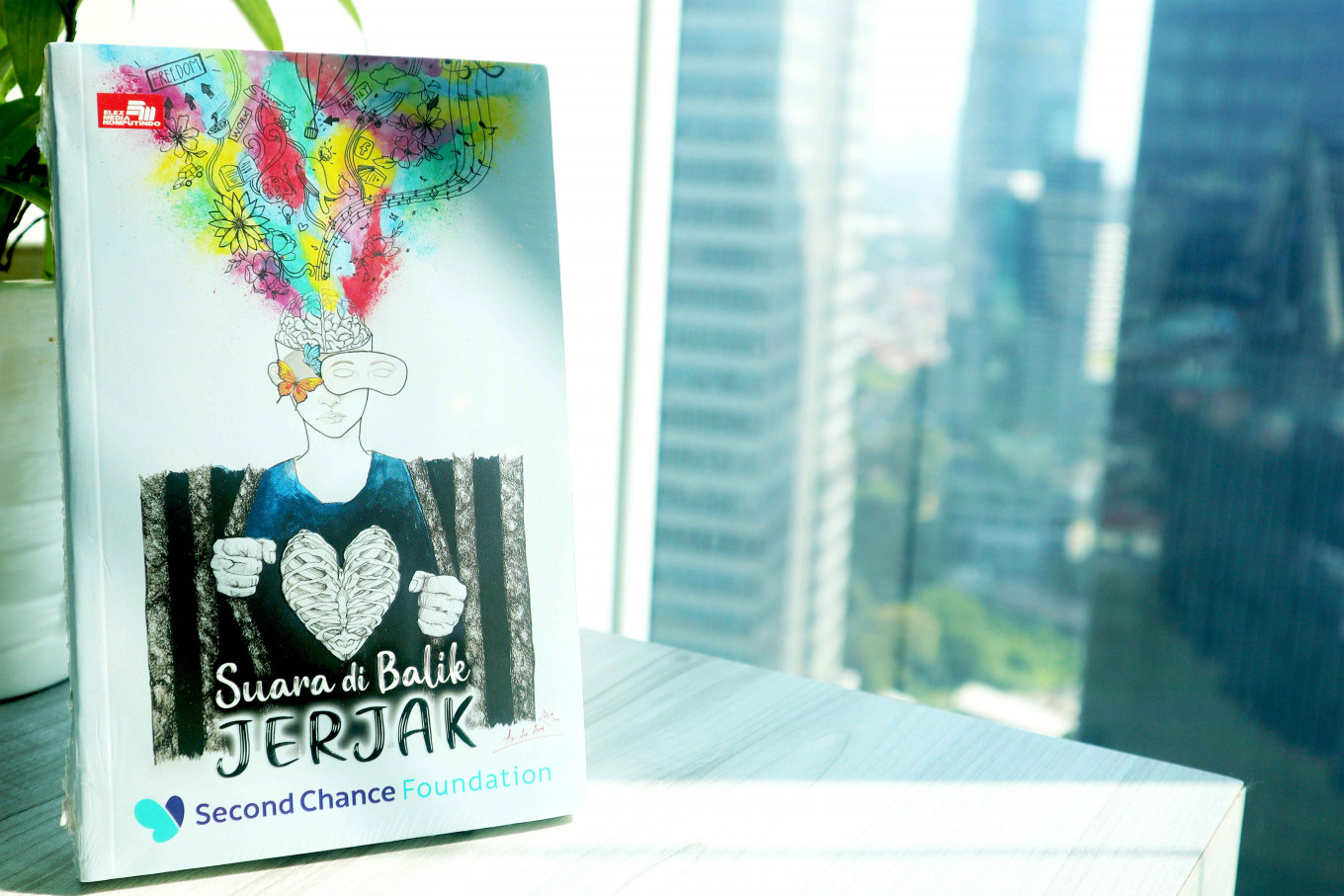Popular Reads
Top Results
Can't find what you're looking for?
View all search resultsPopular Reads
Top Results
Can't find what you're looking for?
View all search resultsSecond chance: Prisoners share hope for better future through short stories
A new book lets prisoners and ex-inmates share their writing skills and stories.
Change text size
Gift Premium Articles
to Anyone
Priyettin Debora Wuisan was excited but nervous about her prospect of getting out of prison in five months.
“I will have to start over again, I might have difficulties adapting to the new gadgets and technology, as in prison I am not allowed to own a cellphone,” the 33-year-old told The Jakarta Post during a zoom interview on Sept. 13.
Debora was arrested in 2011 after her then-boyfriend used her as a mule to deliver 500 grams of heroin.
“I was ordered to meet a girl who had flown from Malaysia to Jakarta. She smuggled the drugs by swallowing the package. After she excreted the package, I took it to my then-boyfriend, who was a drug dealer. Not long afterward a group of police officers came and arrested us,” she said. Upon the arrest, not only was she sent to prison, she was also diagnosed with HIV.
“The younger generation should not follow my footsteps. I was gullible and not careful in choosing romantic partners. Now I have to stay behind the bars because of love,” she said, laughing bitterly.
After over a decade living in Semarang Class IIA Prison for Women, Debora remains a bubbly and optimistic person. She said that after regaining her freedom in February 2022 she aspired to build her life all over again by starting her own boutique, a dream inspired by famous designer Anne Avantie who frequently visits the prison and carries out fashion design workshops for the girls.
Debora wrote a short story inspired by her dream upon her release. The short story, "Kehidupan yang Lebih Baik" (A Better Life) was shortlisted for a compilation of short stories published by Second Chance Foundation, an NGO focusing on empowering prisoners, and veteran book publisher Elex Media Computindo. The book, Suara di Balik Jerjak (Voices from Behind Bars) compiles 26 short stories written by prisoners from all over Indonesia.
Debora’s short story is about a boutique owner who interviews a young woman, freshly released from prison, who proposes to be a customer attendant in the boutique. The young woman is fidgeting and nervous because of her status as an ex-inmate, but the boutique owner decides to accept her application because she is also an ex-inmate.
“The story is a wishing well of my dream,” she said. “Above all, what I really want is to be accepted by society despite all my shortcomings.”
Their tales: 26 inmates and ex-inmates from around the country share their stories in a new book. (JP/Arya Dipa) (JP/Arya Dipa)Second chance
Debora’s story was among 26 stories shortlisted from 160 drafts sent to the program committee of the Second Chance Foundation (SCF). Each prison provided mentors to the prisoners who wanted to take part in the competition, and sent the resulting drafts to the committee.
The foundation sent the drafts to a panel of three judges, literary figures Feby Indirani, Oka Rusmini and Nuril Basri. The judges then decided on the three best stories in the adult category, three others in the children's category, as well as the 20 best stories.
SCF founder and leader, Evy Amir Syamsudin, said the competition was actually held to keep the prisoners busy during the pandemic with activities that could be easily done in compliance with the social distancing policy. However, the participants’ testimonies made her consider turning the competition into a routine activity, even after the pandemic is over and social distancing is no longer necessary.
“A mentor from a children’s prison in Pontianak sent 13 drafts to us. He happily said that although many of the drafts did not meet the competition requirements, the activity itself had significantly helped the children to be more confident and motivated. They want similar competitions to be organized routinely so that they can keep training their skill,” Evy told the Post.
“These testimonies make us believe that competition programs are beneficial both to adult and children prisoners, despite the limitations imposed by the prison bars and the pandemic. I also hope the book can help people to understand prison life better and inspire empathy.”
The SCF was founded in 2014 when Evy’s husband, Amir Syamsudin, was the law and human rights minister. Their first programs were Napi Craft (napi is Indonesian for "prisoners"), an empowerment program that teaches crafting skills to the prisoners, with hope that upon their release the prisoners will use their new skills to make a healthy contribution to society. Since its founding, the SCF has done regular training and workshops at prisons in Semarang, Malang, Tangerang, Salemba and Cipinang.
“Most prisoners are normal people with kind hearts who were trapped into being outlaws. Many of them have a strong intention to be a better person. They also have the ability to create high quality crafts with economic value,” Evy said.












